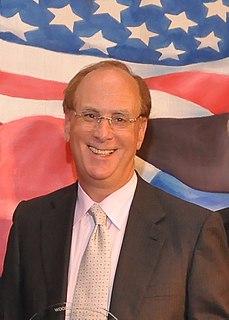A Quote by Anurag Thakur
From food security to housing, from job creation to healthcare, from financial inclusion to insurance - we have adopted a holistic approach towards social welfare.
Related Quotes
Those who devise better methods of utilizing manpower, tools, machinery, materials and facilities are making real contributions toward our national security. Today, these ideas are a form of insurance for our national security; tomorrow, this same progressive thinking is insurance for our individual security-it is, in effect, job insurance.
If you look at what's happened to the stock market, if you look at what's happened to housing values, if you look at what's happened to bank loan portfolios because the value of their other assets that they've already issued loans against were going down, there was a pretty good argument for trying to pass something at about this level of investment with the divisions as they were - unemployment, food stamps, and tax cuts, aid to education and healthcare, and job creation.
Social Security is an insurance policy. It's a terrible investment vehicle. Social Security has some great benefits. But it was never meant to be a savings plan. So we need to have a national debate. Should this 12.5 percent that we're contributing all go into a Social Security pool, or should half go into a mandatory savings plan?
Organisation of social insurance should be treated as one part only of a comprehensive policy of social progress. Social insurance fully developed may provide income security; it is an attack upon Want. But Want is one only of five giants on the road of reconstruction and in some ways the easiest to attack. The others are Disease, Ignorance, Squalor and Idleness.
The poverty we see in America is now too widespread, and too complex, for easy fixes. But I do think we can reimagine many of our institutions and can create new ones in ways that would be effective. We could, for example, create social insurance systems, similar to social security, such as that we went through in 2008-9. We could create a financial transaction tax, oil profit taxes and a fairer estate tax system, and we could plow much of the revenue raised from these into job training programs, into better education infrastructure, into an expanded Earned Income Tax Credit.































